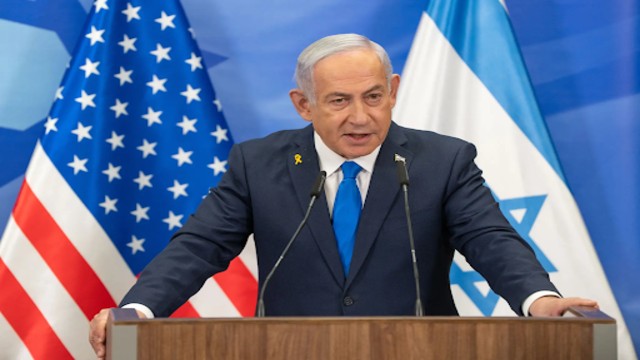
On Sunday, Israeli Prime Minister Benjamin Netanyahu warned that severe consequences would follow if Hamas does not release all hostages held in Gaza. Getty Images
Israeli Prime Minister Benjamin Netanyahu and US Secretary of State Marco Rubio have warned Hamas that they will face "the gates of hell" if they fail to release all hostages still held in Gaza. This strong statement was made during a meeting between Netanyahu and Rubio in Jerusalem on Sunday.
The two leaders emphasized that Israel and the US share a unified strategy to tackle Hamas and ensure the release of all hostages. Netanyahu made it clear that freeing the hostages remains the highest priority, but he did not reveal specific details about the next steps, including when the "gates of hell" would open if the hostages are not released.
"We can't always share the details of this strategy with the public, including when the gates of hell will be opened, as they surely will if all our hostages are not released until the last one," said Netanyahu in a joint statement with Rubio.
Hamas had previously released three hostages on Saturday, including Russian citizen Sasha Trupanov, but there are still many remaining in captivity. Netanyahu stressed that Israel intends to eliminate Hamas’ military power and its control over Gaza. The goal is to ensure that Gaza never again poses a threat to Israel and to bring all hostages back safely.
Rubio also reaffirmed the US's full support for Israel in the second phase of negotiations aimed at securing the release of all hostages. He stated that this phase would free all living hostages from Gaza, following the release of the first 33 in the initial phase.
Another key point of discussion was the future of Gaza after Hamas. Although Israel has not yet identified a replacement government for Gaza, Rubio made it clear that Hamas can no longer govern or use violence to control the region. "As long as it stands as a force that can govern or as a force that can threaten by use of violence, peace becomes impossible. It must be eradicated," he said.
Gaza has been devastated after over a year of conflict, with much of the area in ruins. The leaders also discussed the controversial plan proposed by former President Donald Trump, which involves evacuating more than two million Palestinians from Gaza to allow the US to take over the region and rebuild it. This plan has been rejected by several countries in the Arab world, including Egypt and Jordan.
Despite the backlash, both Netanyahu and Rubio defended the plan. Netanyahu called it a bold vision for the future of the region. "Trump has presented a bold new vision, the only plan I think can work," he said. Rubio also supported the plan, emphasizing that it was a courageous and forward-thinking approach.
In conclusion, Netanyahu and Rubio made it clear that the stakes are high. If Hamas does not release the hostages, Israel and the US are prepared to take severe actions. The future of Gaza remains uncertain, but both leaders agree that Hamas can no longer be allowed to govern the area.















